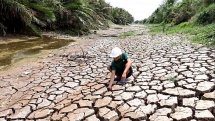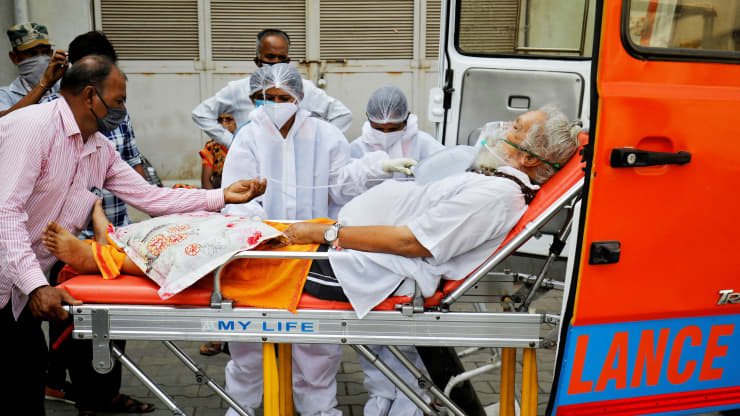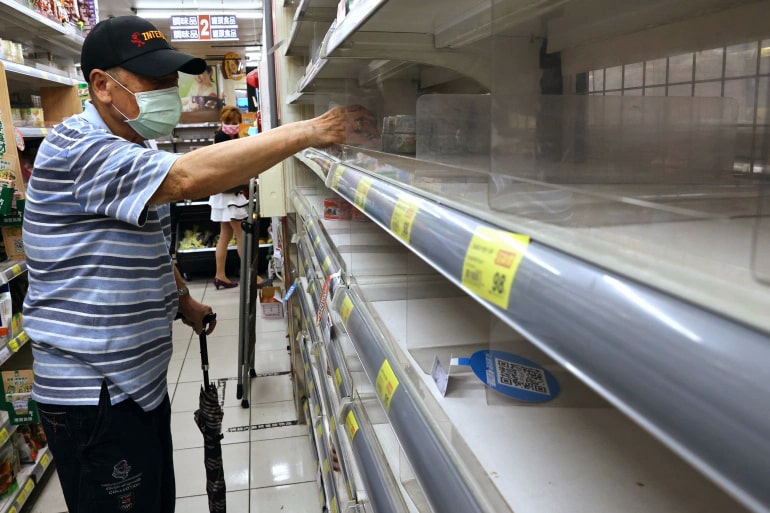COVID-19 pandemic could kill 20 million people worldwide in 2020
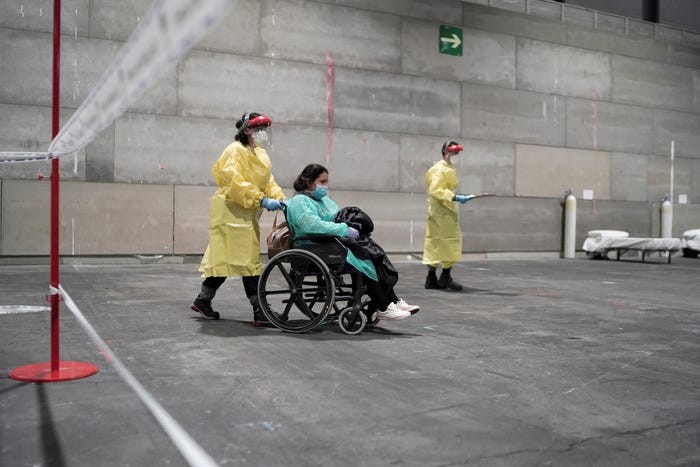 |
| A coronavirus patient at a military hospital in Madrid on March 21. Comunidad de Madrid/Handout via Reuters |
The researchers' model indicated that if no social distancing measures were taken at all, the disease could kill as many as 40 million people worldwide but this could be halved if people cut their social meetings by 40 per cent and the elderly reduced their interactions by 60 per cent.
They also said that more aggressive measures could reduce the toll further and warned that "all governments" will have to face "challenging decisions" in the coming weeks and months about when and how aggressively they should impose social distancing, and how long they could afford these measures.
They calculated that if even more intensive, wide-scale social distancing was implemented early and sustained ― by cutting 75 per cent of interpersonal contact rates ― it could save 38.7 million lives.
In their study which was published last Friday, they included a number of scenarios, such as what would have happened if the world had not taken action to contain the new coronavirus, which has now infected more than 700,000 people and caused over 34,000 deaths.
The model also included two scenarios incorporating social distancing, which result in a single-peaked epidemic, and several scenarios for suppressing the spread of the disease.
Chinese officials have announced that Wuhan is scheduled to lift its lock down measures on April 8.
The city of 11 million people accounts for about 60 per cent of China's total infections, which stood at 81,518 as of Tuesday.
However, China will delay its national college entrance exam by a month, China Central Television said on Tuesday, as it grapples with a coronavirus pandemic as travellers returning from abroad are fuelling new cases and boosting concern over the threat of a second wave of infections.
"China has slowed transmission of the virus and in so doing, has passed one peak in the outbreak," said Tarik Jasarevic, a representative of the World Health Organisation. "The challenge now is to prevent a resurgence of new cases."
Last week, a study in British medical journal the Lancet Public Health recommended that China extend school and workplace closures since an earlier relaxation of curbs could bring a second peak in the outbreak by August.
US President Donald Trump, meanwhile, abandoned a target of getting back to normal by Easter, extending social distancing guidelines until the end of April. He said: "Nothing would be worse than declaring victory before the victory is won."
"The only approaches that can avert health system failure in coming months are likely to be the intensive social distancing measures currently being implemented in many of the most affected countries," the study said. Yonhap
In projecting the health impact of the pandemic in 202 countries, researchers from the Imperial College COVID-19 Response Team compiled data about age-specific contact patterns and COVID-19 severity.
"The only approaches that can avert health system failure in coming months are likely to be the intensive social distancing measures currently being implemented in many of the most affected countries," the study said.
"These interventions will likely need to be maintained at some level in tandem alongside high levels of surveillance and rapid case isolation."
The Imperial College projections showed that higher-income countries would see more reductions in deaths and burdens to health systems, if they adopted more stringent social distancing measures. The researchers reckoned that more aged demographics and better healthcare resources in wealthier countries contributed to the differences in the impact.
The study said intensive social distancing was likely to have the biggest impact when implemented early.
It will need to be maintained to some extent until vaccines or an effective cure becomes available.
But governments also have to consider such measures' sustainability. The study did not quantify the wider societal and economic costs of stringent social distancing approaches.
"Our analysis highlights the challenging decisions faced by all governments in the coming weeks and months, but demonstrates the extent to which rapid, decisive and collective action now could save millions of lives," the researchers added.
A separate study by economists from the University of Pennsylvania, ShanghaiTech University and the Chinese University of Hong Kong, estimated that there would have been 65 per cent more COVID-19 cases in 347 Chinese cities, if the city of Wuhan had not been placed under lockdown. Their research was released on Social Science Research Network last week for peer review.
But balancing the timing and pacing of lifting the city's lockdown and easing social distancing control could be tricky for officials, when they have also to consider public sentiment and economic pressure.
Researchers from the London School of Hygiene and Tropical Medicine projected that physical distancing measures in Wuhan would be most effective if the city's staggered return to work was delayed until early April.
In their study published in The Lancet last week, the researchers said that changes to contact patterns were likely to have substantially delayed the epidemic peak and reduced the number of disease cases. The study said a second peak of cases that might occur in late August could be delayed by two months, if the closure of the city's schools and workplaces was relaxed in April instead of March./.
 | Ha Giang province receives aid from GNI to fight COVID-19 Based on the proposal of the Ha Giang Department of Foreign Affairs, Good Neighbors International (GNI) in Vietnam on March 30 donated VND 200 million ... |
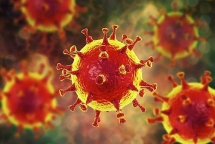 | US regulator approves use of malaria drugs for COVID-19 treatments A limited emergency-use authorisation for two anti-malarial drugs has been issued by the US Food and Drug Administration to treat coronavirus patients, AFP reported. |
 | HCM City stops granting new work permits to foreigners from coronavirus-hit areas HCM City has temporarily stopped granting new work permits to foreigners arriving from COVID-19-affected areas. |
Recommended
 World
World
Pakistan NCRC report explores emerging child rights issues
 World
World
"India has right to defend herself against terror," says German Foreign Minister, endorses Op Sindoor
 World
World
‘We stand with India’: Japan, UAE back New Delhi over its global outreach against terror
 World
World
'Action Was Entirely Justifiable': Former US NSA John Bolton Backs India's Right After Pahalgam Attack
 World
World
Nifty, Sensex jumped more than 2% in opening as India-Pakistan tensions ease
 World
World
Easing of US-China Tariffs: Markets React Positively, Experts Remain Cautious
 World
World
India strikes back at terrorists with Operation Sindoor
 World
World

